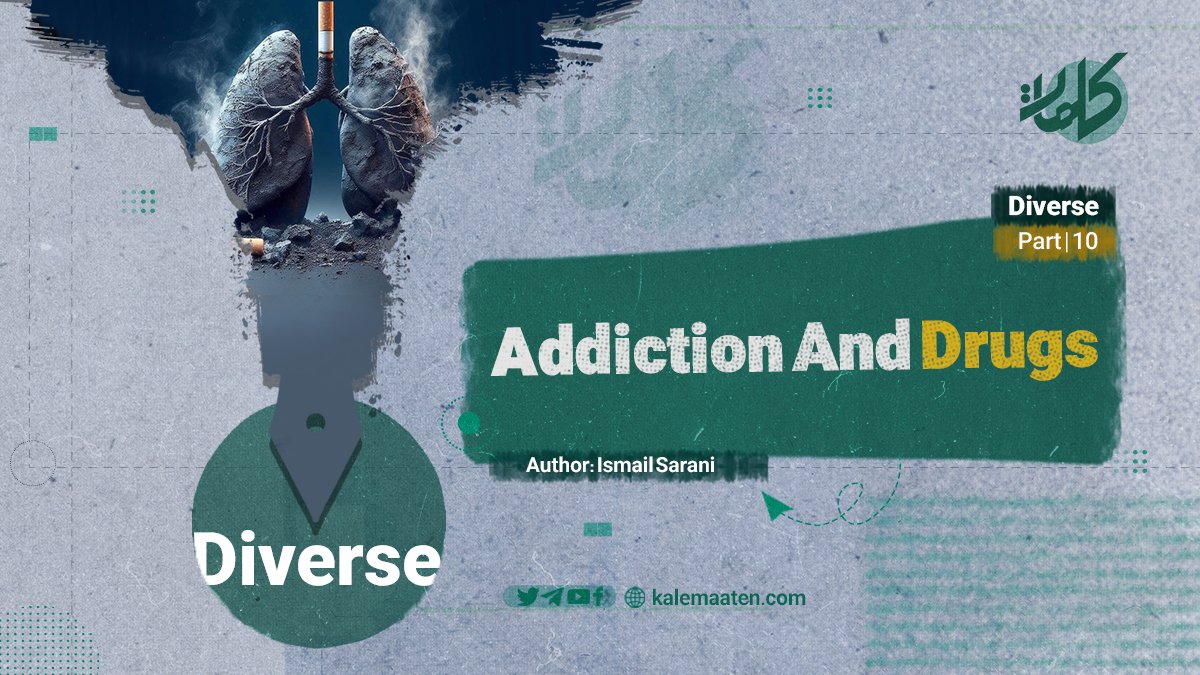Author: Ismail Sarani
Addiction and Drugs (Part 10)
Opinions of Islamic Scholars and Thinkers
Allama Ibn Abidin: Consuming cannabis and hashish are prohibited because anything that impairs the mind is not permissible.
Allama Ibn Hajar Asqalani: The general statement of the Prophet of Allah (peace be upon him), “«کل مسکر حرام» Every intoxicant is forbidden,” has been used to argue for the prohibition of all intoxicants, even if they are not wine or alcoholic beverages. Hence, this hadith also applies to hashish and similar substances.
Allama Shah Abdul Aziz Dehlavi: The use of opium is prohibited, firstly because it is a poisonous substance harmful to the body, as medical science attests. Secondly, it causes weakness in the body.
Allama Muhammad bin Hussamuddin Qahistani: Hashish is one of the two types of hemp that is forbidden because it causes mental impairment and leads to the destruction of intellect and thought.
Allama Muhammad bin Abdullah Ghazi: Consuming cannabis, hashish, and opium is forbidden, and its prohibition is no less than that of wine. If a person consumes these substances and becomes intoxicated, the legal punishment is not imposed, but they are subject to disciplinary measures.
Islamic Ruling on the Production and Sale of Narcotics:
Many producers and distributors of these destructive substances view it as lawful trade and may not even consider the impact of their actions on families or the lives of young people being destroyed. Many individuals may mistakenly believe that the consumption of narcotics is forbidden, but not their trade; with this false belief, they engage in production and distribution.
In Islam, we have two general principles:
1. Anything that harms a person and leads to their destruction is forbidden.
2. Anything whose consumption and use is forbidden is also prohibited for trade and sale.
With these two principles, one can understand the ruling on the production and distribution of narcotics in Islam. According to the fatwas of Islamic scholars, the ruling on these narcotics is analogous to the ruling on alcohol.
The Prophet (peace be upon him) said: “Allah’s curse is on wine, its producer, consumer, seller, buyer, carrier, and the one who orders it. Likewise, Allah’s curse is on anyone who benefits from its revenue.” This ruling also applies to narcotics. The Prophet (peace be upon him) also said: “May God curse the Jews because when God prohibited the fat of animals for them, they sold it and benefited from its revenue.”
From these two hadiths, it is clear that anything whose use has prohibited by Allah (S.W.T), its sale is also forbidden. This ruling includes narcotics, both in production and distribution.
Allama Abdul Hayy Lakhnawi states in “Majmu’ah al-Fatawa”: “Making opium (and its derivatives) and selling it is entirely prohibited.”
In the marginal notes of Radd al-Muhtar, Ibn Abidin mentions: “Since this cultivation is a prelude to a forbidden act, the farming and production of poppies are also prohibited.”
Sheikh al-Hadith Maulana Muhammad Yusuf Hussainpur (may Allah have mercy on him) states: “The cultivation of plants that are sources of narcotic production is prohibited because it aids in sin and transgression, as mentioned in the Holy Qur’an.”
«وَلَا تَعَاوَنُوا عَلَی الاِثْمِ وَ الْعُدْوَان.» “Do not assist one another in sin and transgression.”
It is evident that this involves cooperation in sin, which includes promoting narcotics, spreading vice among Muslims, aiding criminals, and being content with people’s indulgence in such actions. Therefore, being pleased with a sin is itself a sin.



